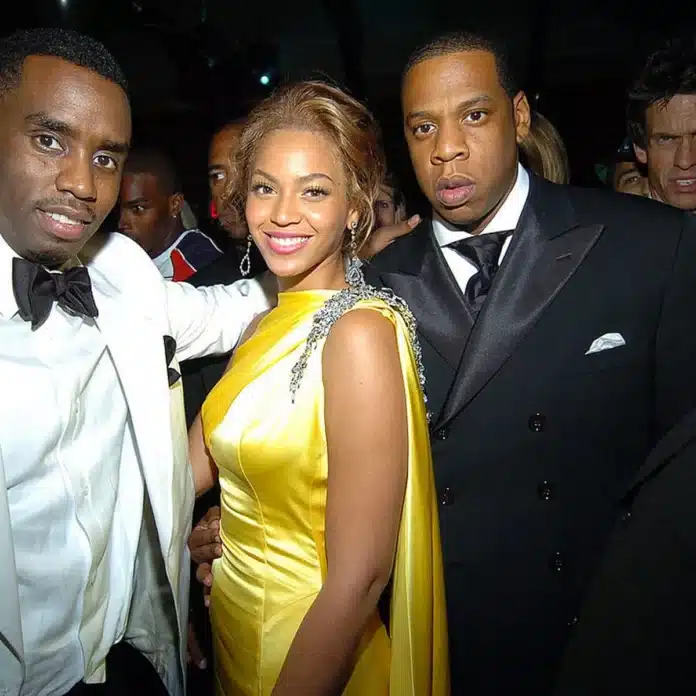In today’s digital world, the construction of identity—particularly for celebrities—is a carefully crafted act that can quickly unravel when faced with scandal or scrutiny. Theories from Erving Goffman and Guy Debord provide insight into how identities are built and maintained, and why they can collapse under public pressure, as seen in recent controversies surrounding figures like Diddy, Beyoncé, and Jay-Z.

Goffman’s Theory of Impression Management describes identity as a performance, where individuals adjust their behavior to fit audience expectations (Goffman, 1959). For celebrities, social media acts as the “front stage” where they project curated versions of themselves. Beyoncé, for instance, has long maintained an image of elegance, empowerment, and social consciousness. This image requires careful management, and any association with controversy threatens the integrity of this crafted identity. Diddy’s recent allegations, coupled with rumors about his past dealings with Beyoncé and Jay-Z, illustrate the fragility of public personas. As Diddy’s “backstage” becomes public, his well-maintained image as a music mogul and industry leader faces scrutiny, impacting those around him by association.
/Erving_Goffman-58b88d815f9b58af5c2da940-5c3e591246e0fb000186ed5f.jpg)
Guy Debord’s “Society of the Spectacle” theory (Debord, 1967) further explains this phenomenon. Debord argues that society is driven by the consumption of images rather than real experiences, creating a world where identities are commodified and consumed. Figures like Diddy, Jay-Z, and Beyoncé are not just celebrities; they are “spectacles” whose identities are shaped and upheld by public perception. When Diddy’s allegations surfaced, the spectacle of his identity began to crack, revealing inconsistencies and raising doubts. This disruption also touches Jay-Z and Beyoncé, as associations in the digital world can lead to guilt by connection, tarnishing even those who remain silent.

In the digital era, celebrities’ identities are highly public, but also highly vulnerable. The impact of mediatization means that once-private matters are now subject to intense public scrutiny, with every rumor and association quickly spreading across platforms (Hjarvard, 2008). The situation with Diddy, Jay-Z, and Beyoncé highlights how closely identity is tied to public opinion. While they may control what’s posted online, they cannot control the narratives that unfold around them, showing that the identity they construct is never entirely secure.
By applying Goffman’s and Debord’s theories, we see how digital identity, especially for high-profile figures, is a constant act of balancing public perception with personal reality. Recent events around Diddy emphasize that, in a world where reputation is one click away from collapse, identity is both powerful and precarious.
Sources
Debord, G. (1967). The Society of the Spectacle. Black and Red.
Goffman, E. (1959). The Presentation of Self in Everyday Life. Anchor Books.
Hjarvard, S. (2008). The Mediatization of Society: A Theory of the Media as Agents of Social and Cultural Change. Nordicom Review, 29(2), 105-134.


It’s really a crazy news, right?
The blog post explains the control that the media has on a celebrity’s persona and how fragile the identity of a celebrity is when faced with media scrutiny. The example used highlights how being associated with certain celebrities during media scrutiny can also affect their own image.
#This post was amazing and a good read – it’s so interesting how their reputation in general has changed due to all the Diddy allegations, and how the internet has tied Beyonce into it, made memes about it, and how many more allegations against others have surfaced as a result. Your use of Goffman and Debord to back up your argument was well thought out as well, and shapes your points nicely.
Although there’s not much improvement to be had, maybe you can explore Beyonce a bit more, and the memes created as a result of the allegations – do you think this has impacted her reputation massively, and shaped her front stage identity as a result? Do you think she has been affected backstage as well?